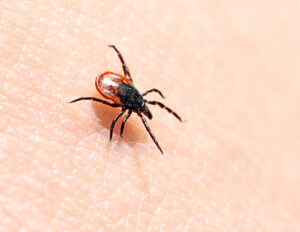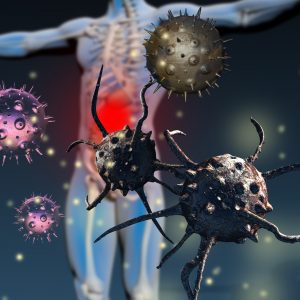
Leaky Gut, Chronic Disease, & Long Term Health
Leaky Gut This blog discusses the very important health issue of leaky gut. You will learn: What is the gut & the gut microbiome What
If you are a doctor or clinician looking to make a bigger impact on the world, have more job satisfaction and have up-to-date protocols and treatment solutions for your patients, check out our free functional medicine training led by functional medicine expert, Dr. Miles Nichols below.
Plus additional BONUS training videos on treating tough cases of brain fog and cognitive impairment!!
In this blog, we will look at Lyme Disease and mental health. You will learn:
Do you know what Lyme Disease is and how it can affect your clients’ mental health? If you want to know more about this relatively unknown symptom of Lyme and how to best optimize the health of your clients, then this blog is for you. Please read on for answers!
Do you get stuck clinically with chronic symptoms in your patients? Would you like to have a larger impact on improving your clients’ issues?
The key to optimal health is an individual approach using nutrition, lifestyle and exercise. To improve your patients’ quality of life, you need to identify and address the root causes. Our functional medicine course will teach you how to do this. Look into our functional medicine school to have a greater impact on improving your client’s lives.
** Please note: If you want the short summary version of this article, then please click here **
What is Lyme Disease (LD)?
Lyme Disease is a tick-borne illness and is often called the ‘Great Imitator’. It is contracted from a Lyme-carrying tick’s bite. It has various symptoms and can present in many ways. Doctors call it the ‘Great Imitator’ because it can imitate many other diseases. It can often go misdiagnosed or undiagnosed. Even if properly diagnosed, treatment is not always effective. Because of these issues, some people suffer quite a lot from untreated or improperly treated Lyme Disease. Their symptoms can simply show up as something the doctors don’t think is Lyme Disease.
We have written extensively about Lyme Disease in our blogs. Please start here with some definitions of Lyme and continue reading through our blog for in-depth information regarding Lyme Disease. In our clinic, we are experts at diagnosing and treating Lyme.
Lyme Disease & Mental Health Facts
There is increasing evidence and recognition that Lyme Disease can cause mental health symptoms (Bransfield, 2018). Lyme has immune and metabolic effects that can lead to psychiatric issues, which may include depression, anxiety disorders, developmental disorders, autism spectrum disorders, schizophrenic disorders or bipolar disorder (Bransfield, 2018).
Lyme Disease & Depression
The most commonly reported psychiatric symptoms in people with chronic symptoms after Lyme Disease are depression and irritability (Doshi S, 2018). Getting quickly and successfully treated lowers the chances of depressive symptoms (Doshi S, 2018).
5–20% of Lyme patients have persistent or relapsing symptoms, even after antibiotic treatment (Doshi S, 2018). Patients with persistent chronic symptoms had higher levels of depression.
In one study, 25% of all patients still suffering from symptoms post-Lyme treatment reported moderate-to-severe levels of depression (Doshi S, 2018). A different study reported this group to actually be 45% of patients, in a Lyme Disease referral center. These rates of depression are comparable to those reported in other studies of people with acute Lyme (Doshi S, 2018).
What this data tells us is that depression due to Lyme Disease is not uncommon. When Lyme has been improperly diagnosed and/ or treated, people are more likely to experience depression. The chances of depression are reduced if we have an early diagnosis and successful, effective treatment (Bransfield, 2018).
Lyme Disease & Anxiety
Different types of anxiety may be caused by Lyme Disease. Symptoms may include different anxiety disorders, such as panic disorder, social anxiety disorder, generalized anxiety disorder, obsessive compulsive disorder (OCD) and post-traumatic stress disorder (Bransfield, 2018). Other common psychiatric symptoms of Lyme include mood instability, rage, panic attacks and even bipolar episodes or psychotic symptoms (Bransfield, 2018).
Panic disorder is associated with Lyme Disease. Panic disorder can happen, at some point, in up to 50% of people with Lyme (Bransfield, 2018). Although no study has specifically addressed social anxiety disorder with Lyme Disease, it is a common clinical finding in patients with a prevalence of perhaps up to 70% (Bransfield, 2018). Generalized anxiety has been associated with Lyme, and seen up to 50% of the time (Bransfield, 2018).
Obsessive compulsive disorder is classified as an anxiety disorder (Bartz JA, 2006). OCD has been reported with Lyme and can have a very sudden onset (Bransfield, 2018). In one survey of patients diagnosed with Lyme Disease, 84% were reported to have obsessive compulsive symptoms (Johnco C, 2018). 44% of these participants self-identified these symptoms as problematic and 51% reported at least some improvement in obsessive compulsive symptoms following antibiotic treatment (Johnco C, 2018).
Post-traumatic stress disorder has been associated with Lyme Disease at a prevalence of 24% (Bransfield, 2018).
Intrusive symptoms, such as unwanted or upsetting memories, nightmares, flashbacks and emotional distress/ physical reactivity after exposure to reminders, are associated with Lyme Disease. These symptoms may present with OCD, post-traumatic disorder or be present on their own. This was found in 34% of Lyme sufferers (Bransfield, 2018). Lyme patients with intrusive symptoms also had cognitive impairments (100%), neurological symptoms (98%), obsessiveness (89%), depression (80%), low frustration tolerance (80%), explosive anger (73%) and social isolation (67%) (Bransfield, 2018).
Plus additional BONUS training videos on treating tough cases of brain fog and cognitive impairment!!
Why does Lyme Disease lead to Depression or Anxiety?
Precisely why Lyme Disease causes mental health issues is not entirely clear though we can think of a number of reasons why this might happen with Lyme. The question is whether mental health symptoms are due to the physiological and immunological effects of Lyme Disease, the psychological effects of having a serious illness or a combination of both of these factors (Johnco C, 2018).
Potential Causes of Mental Health Issues are (Doshi S, 2018):
Lyme Disease, like other infections in the body, can challenge the immune system. This can lead to immune effects and biochemical changes in the brain. These changes in the brain can cause neuropsychiatric symptoms (Bransfield, 2018). Sleep disorders and chronic stress can result, which can cause further disease progression and neuropsychiatric symptoms.
Research has found that the pathological process of Lyme Disease can result in developmental disorders, autism spectrum disorders, schizoaffective disorders, bipolar disorder, depression, anxiety disorders (panic disorder, social anxiety disorder, generalized anxiety disorder, post-traumatic stress disorder, intrusive symptoms), eating disorders, sleep disorders, decreased libido, addiction, opioid addiction, cognitive impairments, dementia, seizure disorders, suicide and other serious effects (Bransfield, 2018).
Is Inflammation the Root of the Problem?
The inflammation throughout the body and, especially in the brain, that can happen during a Lyme Disease infection can be serious. It can lead to neurodegenerative changes that result in mental health issues. Lyme infections that have progressed to neurological symptoms can present with a variety of psychiatric symptoms: paranoia, delusions, hallucinations, depression, mania and others (Mattingley DW, 2015).
Patients can experience psychiatric symptoms even after treatment with antibiotics. People who have been treated for Lyme Disease may have psychotic symptoms years later, as a result of the inflammation-mediated neurodegenerative damage that happened during the Lyme infection (Mattingley DW, 2015).
We know that in neurodegenerative diseases, uncontrolled inflammation can be a strong driving force for disease progression. Interactions between damaged neurons and dysregulated, overactive microglia (a type of brain immune cell) can result in prolonged inflammation that drives the disease process.
To improve recovery for Lyme sufferers, doctors need to be alert to these symptoms. Sleep disorders, fatigue, cognitive impairments, depression, anxiety disorders, chronic pain, etc. all contribute to the disease progression. Using early anti-inflammatory therapy in patients diagnosed with Lyme Disease may help to prevent inflammation-mediated neurodegenerative damage. Catching these symptoms early on is critical because these neurological, psychiatric symptoms can become permanent and irreversible if not addressed quickly (Mattingley DW, 2015).
Summary
If you are a clinician wanting to learn more about treatment of Lyme Disease, please check out our clinician training programs here.
** Please stay tuned for our next Blog! **
Does your current health situation look like this…
We specialize in finding answers and solutions for complicated chronic illness when people feel like they have tried everything. If this sounds like you, book a free call with us to see if we are the right fit for your health goals.








Leaky Gut This blog discusses the very important health issue of leaky gut. You will learn: What is the gut & the gut microbiome What

Research on Alzheimer’s disease is continuously looking for what causes the disease and how to better treat Alzheimer’s. A relatively new finding suggests that Alzheimer’s

In this blog, we will look at Lyme Disease and answer the question ‘How does Lyme Disease become chronic?’ You will learn: What Lyme Disease

In this blog, we will look at the causes of Bartonella. You will learn: What Bartonella is and how it compares to Lyme Disease What

In this blog, we will look at the many symptoms of Bartonella. You will learn: What Bartonella is and what causes it What are the

In this blog, we will look at Bartonella. You will learn: What Bartonella is and how it compares to Lyme Disease How Bartonella is spread

In this blog, we will look at Lyme Disease and answer the question ‘Is Lyme Disease curable?’ You will learn: What Lyme Disease is How

In this blog, we will look at Lyme Disease and the growing threat that it has become. You will learn: What Lyme Disease is How

In this blog, we will look at Lyme Disease and mental health. You will learn: How and why Lyme Disease can affect mental health How

In this blog, we will look at cognitive impairment & Alzheimer’s Disease in relation to various lifestyle factors. You will learn: How lifestyle can affect

Alpha Gal Syndrome Today’s article outlines a condition that is thought to affect, conservatively, 3% of the US population. However, there may be many undiagnosed

Can Lyme Disease Cause Joint Pain? In this blog, we will look at Lyme Disease and joint pain. You will learn: How & why Lyme
There was a problem reporting this post.
Please confirm you want to block this member.
You will no longer be able to:
Please allow a few minutes for this process to complete.

